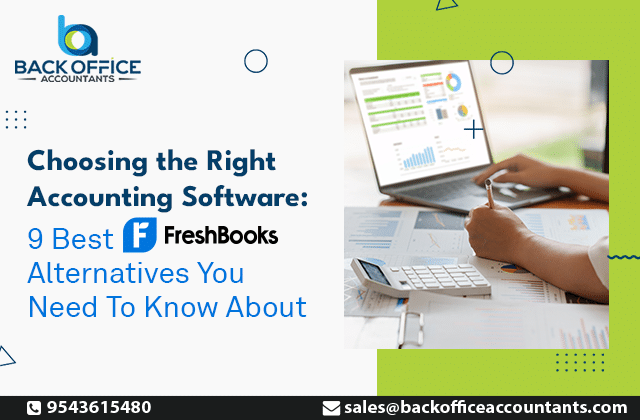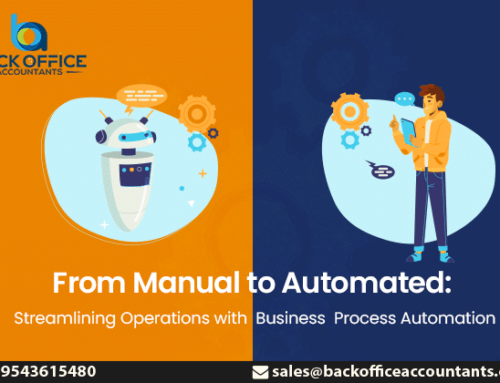Since every business has unique accounting requirements, the best accounting software will depend on the specific needs and goals of the firm. Examples of commonly used and reputable accounting software include QuickBooks, Xero, and Freshbooks. Accounting software deals with such services as creating invoices, record keeping of expenses, and even payroll calculations.
For instance, QuickBooks provides payroll functionality that is suitable for large or small businesses. Medium-sized enterprises can take advantage of Xero’s user-friendly interface which has a strong accounting feature set. Service-oriented companies find Freshbooks helpful.
It offers time-tracking features along with expense management tools that are specifically designed for service-based businesses. To determine the right fit for your business finances, you should consider the size of your company, essential functionalities, user-friendly interface, and the costs involved.
Ensure to consider the best FreshBooks alternatives to elevate accounting process:
1. Wave:
Wave is an accounting software that can be used by small businesses or freelancers without any charge. This software comes with tools for invoicing, accounting, and receipt scanning without subscription charges. Its features comprise creating and sending invoices, managing expenses, and generating financial reports.
Wave has automatic transaction imports through seamless bank connections thus making bookkeeping simple. Nevertheless, the wave-free version is supported by ads and has some limitations as opposed to paid accounting software.
2. QuickBooks Online:
QuickBooks Online is popular among start-ups and mid-size companies today is the ultimate solution. This platform provides different features required for effective financial management. Through QuickBooks Online one can efficiently send out invoices; control expenditures; pay bills promptly; produce financial statements whenever required by shareholders or auditors etc.
The software enables customers to sync their bank accounts for auto-recording of transactions making their bank reconciliations simpler and convenient. It allows accountants and other team members to work together collaboratively by providing different types of access levels. Businesses can also upgrade their plan to a higher one according to their needs as they scale and grow with the QuickBooks online system.
3. Xero:
Xero is a cloud-based accounting software that is easy to use and designed specifically for medium-sized businesses, includes features such as customer invoicing, bank reconciliations, and expense tracking among others. Xero’s interface is very simple hence making it the best solution for teamwork between company accountants and other employees. It is also capable of working with various external products thus enabling management of inventories as well as settling salaries.
4. Billy:
Billy is an accounting software that focuses on simplicity in small companies. Invoicing, expense tracking, and financial reporting are some of the basic features it contains. The main aim of this application is simplicity and ease of use, making it suitable for users who require fundamental accounting functionalities without complex tools. Billy makes it easier for small enterprises to handle financial operations like generating invoices and managing costs.
5. Kashoo:
Kashoo is an intuitive accounting software for small businesses and sole proprietors. It can invoice, track expenses, and produce financial reports. Through simplified tasks like creating invoices and managing expenses, Kashoo tries to have a friendly user interface.
It allows bank connections to enable automatic importing of transactions thus facilitating accurate financial tracking. Nevertheless, Kashoo might not have all the features that come with more extensive accounting software but it is simple enough for a small business looking for basic financial management.
6. Zipbooks:
ZipBooks is free accounting software for small businesses. Its core features include invoicing, expense tracking, and financial reporting. The software aims at simplicity and easy access by furnishing basic tools for managing finance without any subscription costs. However, its free version may have limitations sd compared to paid accounting software but it serves as a viable option for startups or small businesses with basic accounting needs.
7. Zoho Books:
Zoho Books is a cloud-based accounting software suitable for small businesses. This can be utilized for writing invoices, and financial records as well as in creating financial reports. Features such as a simple interface make it easier to create an invoice and track expenses of any nature. Zoho Books enables one to connect with other Zoho Applications and third-party services to ensure maximum usage.
8. Sage Business Cloud Computing:
Sage business cloud computing has invoicing, expense monitoring, and accounting. This software contains user-friendly features that simplify tasks such as invoices, and cost controls among others. Various applications can be integrated providing an enhancement to the functionality of Sage Business Cloud Accounting.
9. Sage Intacct:
Sage Business Cloud Accounting is a cloud-based accounting software specifically tailored for small businesses. The software tool includes invoices, expense tracking, and financial reports. The ease of use features of this software involves simplifying activities like billing and cost allocation.
Back Office Accounting Specialists offer customized bookkeeping and accounting services. Our skilled team ensures accurate financials, compliance, and QuickBooks support. With 99.99% accuracy, we prioritize your needs and secure financial data.
Our reliable, secure services keep your business ahead, meeting regulations. Accessible reports aid decision-making, ensuring operational control. Trust us for proficient back-office accounting and bookkeeping services, all in one place. Ensure to conduct thorough online research to learn more about bookkeeping software for small business.







